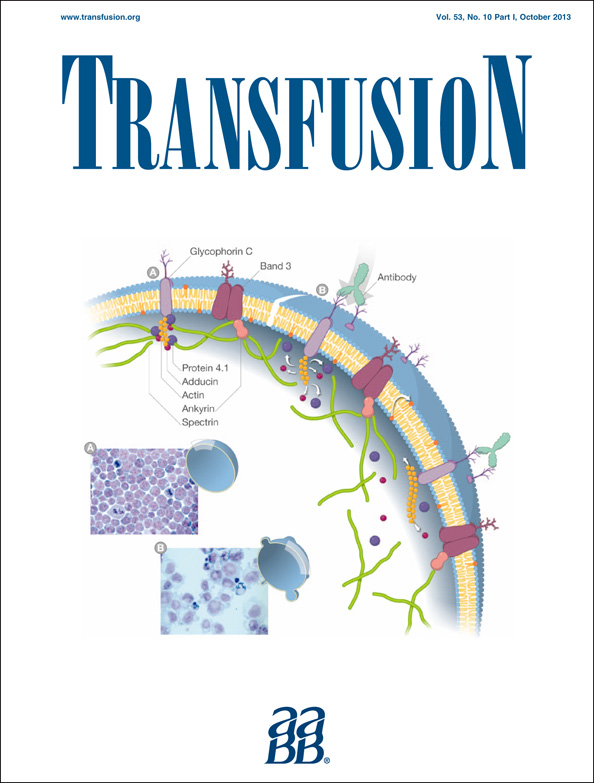Long-term clinical outcomes after Streptococcus bovis isolation in asymptomatic blood donors in Hong Kong
Abstract
Background
Risk of transfusion-transmitted bacterial sepsis has been substantially reduced by a bacterial surveillance program (BST). However, new problems emerge as asymptomatic bacteremia is detected in blood donors. Streptococcus bovis bacteremia, which is known to associate with infective endocarditis and colonic carcinoma, is an example.
Study Design and Methods
A retrospective study was conducted to examine the demographic and clinical outcome of this group of donors. All confirmed culture-positive cases under the BST were retrieved and those donors with S. bovis bacteremia were contacted for follow-up. Viable culture samples were sent for detailed microbiologic analysis.
Results
From 1998 to 2012, a total of 16 donors were found to have S. bovis bacteremia, giving an estimated prevalence of 1 in 110,800 donations. They consisted of nine men and seven women with median age of 43.5 years. Eight donors had undergone colonoscopy with colonic carcinoma detected in two and benign adenoma in four. Five of the 16 isolates could be retrieved for 16S DNA sequencing. Four were identified as S. gallolyticus ssp. pasteurianus and one as S. gallolyticus ssp. gallolyticus. The two patients with colonic carcinoma had one each of subspecies pasteurianus and gallolyticus.
Conclusion
The findings highlight a close association of S. bovis and colonic carcinoma. We recommend prompt donor follow-up if S. bovis bacteremia is detected. Besides, all confirmed S. bovis should be fully characterized by molecular technique.




